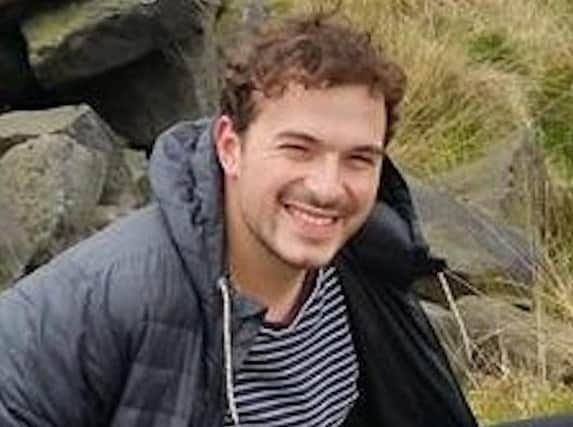Inquest into death of Sheffield gambling addict in Vietnam will not examine government betting regulations


Sheffield's senior coroner Chris Dorries said the question of regulation, including of Fixed Odds Betting Terminals, was "too wide a question" for the inquest into the death of Jack Ritchie and it is "effectively a political matter."
But, in a ruling issued on Wednesday, Mr Dorries said the inquest will include an examination of the the provision of state medical services to Mr Ritchie, who took his own life in Hanoi, Vietnam, in November 2017, after fighting an addiction to gambling since the age of 17.
Advertisement
Hide AdAdvertisement
Hide AdSix men found guilty of sex offences relating to teenage girls in RotherhamHe said it will also look at "the apparent lack of information that might assist families or others to save their loved ones".
At a pre-inquest review earlier this year, Mr Ritchie's parents, Charles and Liz, argued that failures on the part of UK authorities to treat gambling problems had contributed to the death of the English teacher, who was originally from Sheffield and was working in Vietnam.
Lawyers for the family applied for the full hearing to be held as what is known as an "Article 2 inquest", which means that its scope could be expanded to examine if the state, or an arm of the state, breached its duty to protect the citizen's right to life.
On Wednesday, Mr Dorries, released a written ruling in which he agreed with the application with respect to the question of the medical provision for Mr Ritchie.
Advertisement
Hide AdAdvertisement
Hide AdHomes evacuated after gas leak linked to drug productionBut the coroner said the question of the "protection" offered by gambling regulation was beyond the scope of the inquest.
Mr Dorries said: "Looking at the matter of such 'protection' as a whole, I am of the view that this is too wide a question for the inquest, it is effectively a political matter."
But the coroner went on: "However, what I do find compelling is the argument that the provision of medical or psychiatric services to Mr Ritchie at a time when he arguably could/should have been diagnosed with a psychiatric disorder was insufficient."
The coroner said whether Mr Ritchie "received little or no effective support from state services to prevent his gambling addiction" will be a matter for the full inquest.
Advertisement
Hide AdAdvertisement
Hide AdHe said: "But the evidence available thus far tends to support this contention."
Mr Dorries said: "As I made clear at the preliminary hearing, I am deeply cautious of the inquest appearing to become involved in the political aspects of safeguarding potential problem gamblers - for it cannot and must not do so."
He said: "For clarity, I therefore find that it is arguable that Article 2 ECHR is engaged on the basis of two matters: the availability of reasonable medical treatment and the apparent lack of information that might assist families or others to save their loved ones.
At the pre-inquest review earlier this year, Paul Greaney QC, who represented the family, likened the effects of the addiction to those of smoking, saying that it is "not fanciful" to suggest that the state could be held to account for Mr Ritchie's death.
Advertisement
Hide AdAdvertisement
Hide AdHuddersfield-based mountain rescue team's base targeted by thievesThat hearing was told that Mr Ritchie's addiction started in 2010 and, despite receiving treatment and being prescribed anti-depressants, the problem worsened.
Mr Ritchie's final email to his parents, sent on the day of his death on November 22 2017, read: "The point is, I'm past the point of controlling myself and I'm not coming back from this one."
At the earlier hearing, Adam Farrer, representing the Department for Digital, Culture, Media and Sport, argued that it is "not the role of a coroner" to rule on government policy during a fact-finding inquest.
And Philip Kolvin QC, for the Gambling Commission, said of gambling addiction: "Regulation by its nature does not remove the risk, it adjusts the risk, it moderates the risk in a manner which is considered to allow proportionate balance between the role of many to enjoy the activity, and the protection of those that are vulnerable."